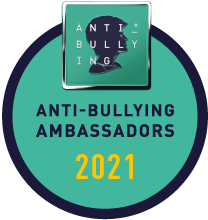Personal Development - PSHE, RSE and Citizenship
PSHE & Citizenship Curriculum
Personal Development Overview
Personal Development at Ryedale School equips pupils with the knowledge, skills and guidance to live healthy and fulfilled lives, and empowers them to become responsible citizens, both during their school years and beyond.
Personal Development at Ryedale School is taught during dedicated lessons, in assemblies, during form time and also during dedicated Personal Development Weeks which take place termly. Personal Development aims to help students to understand how they are developing personally and socially, tackling many of the moral, social and cultural issues that are part of growing up. In addition, it is here that your child will learn about bullying, citizenship, drug education, healthy eating, physical activity, mental and emotional health, wellbeing, and relationships and sex. Our curriculum also aims to develop skills and attributes such as resilience, self-esteem, risk-management, team working and critical thinking which are essential for the success and happiness of our young people.
We follow the statutory Relationships, Sex and Health Education guidance and draw upon the PSHE Association’s Programme of Study in shaping our curriculum.
Relationships and Sex Education (RSE)
Relationships and Sex Education will build on students learning at primary school. It aims to give young people the information they need to help them develop healthy, nurturing relationships of all kinds. Your child will cover content on what healthy and unhealthy relationships look like and what makes a good friend, colleague and successful marriage or committed relationship. At the appropriate time, the focus will move to developing intimate relationships, to equip your child with knowledge they need to make safe, informed and healthy choices as they progress through adult life.
By the end of secondary school, pupils will have been taught content on:
- families
- respectful relationships, including friendships
- online media
- being safe
- intimate and sexual relationships, including sexual health
You can find further details by visiting https://www.gov.uk/government/publications/relationships-education-relationships-and-sex-education-rse-and-health-education
Here is a sample of our resources:
Health Education (PSHE)
Health Education aims to gives young people the information they need to make good decisions about their own health and wellbeing, to recognise issues in themselves and others, and to seek support as early as possible when issues arise.
By the end of secondary school, pupils will have been taught content on:
- mental wellbeing
- internet safety and harms
- physical health and fitness
- healthy eating
- drugs, alcohol and tobacco
- health and prevention
- basic first aid
- changing adolescent body
You can find further details by visiting https://www.gov.uk/government/publications/relationships-education-relationships-and-sex-education-rse-and-health-education
Right to withdraw
You cannot withdraw your child from Health Education or the Relationships Education element of Relationships and Sex Education, because it is important that all children receive this content, covering topics such as friendships and how to stay safe.
If you do not want your child to take part in some or all of the Sex Education lessons delivered at secondary school, you can ask that they are withdrawn. Your child’s head teacher will consider this request and discuss it with you, and will grant this in all but exceptional circumstances, up until three school terms before your child turns 16.
At this age, your child can choose to receive Sex Education if they would like to, and the school should arrange for your child to receive this teaching in one of those three terms (unless there are exceptional circumstances).
The science curriculum in all maintained schools also includes content on human development, including reproduction, which there is no right to withdraw from.
We value your thoughts on our Personal Development curriculum and hold regular parent forums to discuss it. We also invite you to consult on future RSHE policy by completing the below form.
You can find further details by visiting https://www.gov.uk/government/publications/relationships-education-relationships-and-sex-education-rse-and-health-education
Citizenship
Citizenship education is a school subject that develops knowledge, skills and understanding that pupils need to play a full part in democratic society, as active and responsible citizens. Pupils are taught about democracy, politics, parliament and voting. They also learn about human rights, justice, the law, media and information literacy, climate change and sustainability, personal finance and the economy. Political literacy is developed alongside the skills of active citizenship through practical opportunities to address issues of concern by taking different forms of responsible, democratic action and campaigning. Throughout the subject teaching is brought to life using real, topical issues and case studies in local to global contexts. Beyond Citizenship lessons, students have many opportunities to learn and practice the skills needed for participation in politics in the future. These include joining the student council, mock elections, UK Parliament week activities, taking part public speaking competitions such as Youth Speaks and extracurricular clubs such as Debate and Politics Club.
















